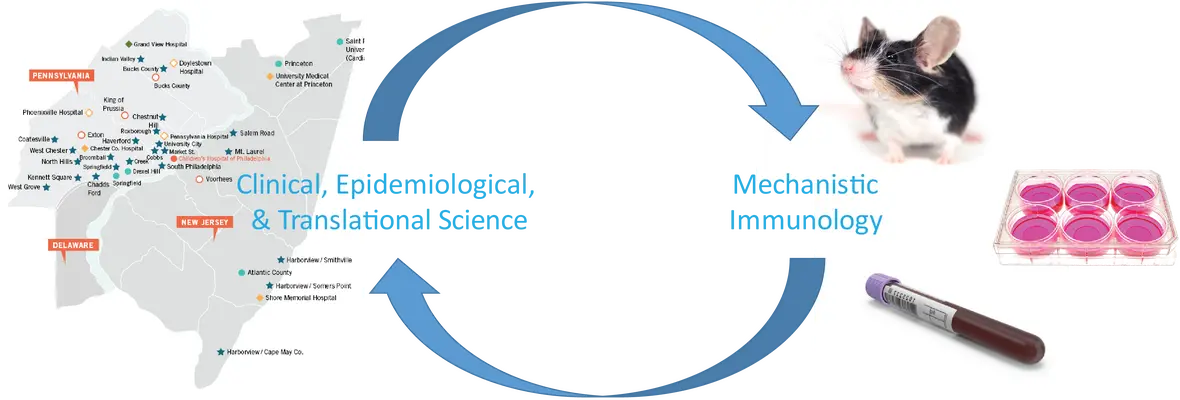Our Approach
"The Hill Lab studies the intersection of diet, the microbiome, and immune function using basic, translational, and clinical research approaches."
The Hill Lab investigates how diet and the microbiome influence immune function and contribute to the development of inflammatory diseases. We take a multidisciplinary approach that integrates basic immunology, translational science, and clinical research.
Our work begins with in-house epidemiologic studies to identify patterns of allergic and inflammatory disease in children. These insights guide mechanistic investigations in both patient samples and experimental models that can be directly translated to clinical trials. This vertical integration allows our team to efficiently define key immune pathways that contribute to disease and uncover opportunities for improved diagnosis, monitoring, and treatment.
Our discoveries have advanced understanding of food allergy, asthma, eosinophilic esophagitis, and obesity-associated inflammation.
Current areas of investigation:
1. Developing clinical tools for food allergy diagnosis and monitoring
We are designing novel assays to improve how allergic diseases are detected and tracked over time. For example, we recently developed a functional T cell assay that accurately identifies food-activated T cells in the blood of children with food allergy—offering a potential non-invasive biomarker for diagnosis and clinical monitoring.
2. Defining novel immune responses in allergic disease
Our lab discovered an interferon-driven gene signature children and adults with eosinophilic esophagitis (EoE), which we are now studying in relation to regulatory T and B cell function. We also identified the first molecular mechanism by which the immune system recognizes food allergens in EoE. Ongoing work is focused on translating these findings into biomarkers and therapeutic targets through parallel mouse model and human studies.
3. Uncovering mechanisms of immune dysregulation in metabolic disease
We identified a unique subset of adipose tissue macrophages that regulate metabolic homeostasis. Building on this, we are exploring how immune cells contribute to adipose tissue homeostasis and metabolic disease, as well as non-allergic asthma.
4. Epidemiologic studies of allergic and metabolic disease in children
We leverage longitudinal electronic health record (EHR) data to study real-world patterns of pediatric allergic disease. Our team has used these tools to investigate conditions such as food protein-induced enterocolitis syndrome FPIES), eosinophilic esophagitis, and pediatric asthma, including the effects of COVID-19 infection and the pandemic more broadly. Current efforts focus on characterizing allergic march trajectories and identifying points of intervention for prevention.


